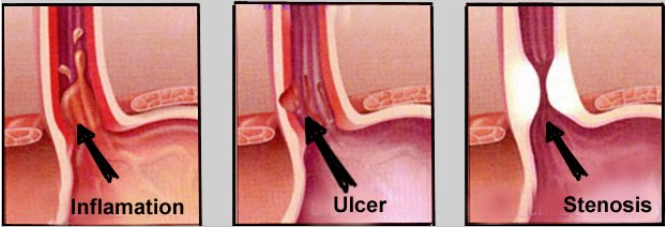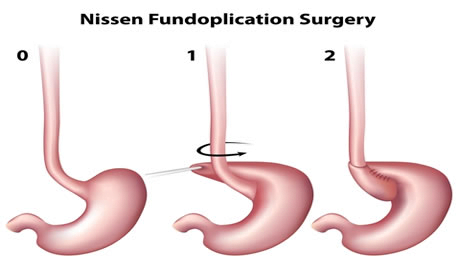4 Powerful Stotras of Lord Shiva – Meaning, Benefits & Importance
Reading Time: 3 minutes Spread the love 4 Powerful Stotras of Lord Shiva – Meaning, Benefits & Importance. भगवान शिव के चार प्रमुख स्तोत्र: अर्थ, महत्त्व…
Dr AvinashTank, is a super-specialist (MCh) Laparoscopic Gastro-intestinal Surgeon,
Gastroesophageal reflux disease (GERD) is a chronic digestive disease that occurs when stomach acid or, occasionally, bile flows back (refluxes) into your food pipe (esophagus). The backwash of acid irritates the lining of your esophagus and causes GERD signs and symptoms.
In normal digestion, once we eat, food travels from mouth to stomach through a tube called the esophagus. At the lower end of the esophagus is a small ring of muscle called the lower esophageal sphincter (LES). The LES acts like a one-way valve, allowing food to pass through into the stomach. Normally, the LES closes immediately after swallowing to prevent back-up of stomach juices, which have a high acid content, into the esophagus.
GERD occurs when the LES does not function properly allowing acid to flow back and burn the lower esophagus. This irritates and inflames the esophagus, causing heartburn and eventually may damage the esophagus.

The majority of foreign body ingestions occur in the children ages of 6 months and 6 years. In adults, foreign body ingestion occurs more commonly in those with psychiatric disorders, developmental delay & alcohol intoxication. Edentulous adults are also at greater risk of ingesting foreign bodies, including an obstructing food bolus or their dental prosthesis. Patients presenting with food bolus impaction often have underlying esophageal pathology directly leading to the impaction. Commonly ingested foreign body are short-blunt objects (coins), long objects (more than 6 cm: tooth brush), sharp pointed objects (chicken & fishbones, paperclips, toothpicks, needles, dental bridges), disk batteries, magnets, narcotics packets.
When symptoms are severe or not relieved by the treatments need more complete diagnostic evaluation.
Endoscopy (Esophago-gastroscopy) is an important procedure. A small lighted tube with a tiny video camera on the end (endoscope) is passed through mouth into the esophagus (food pipe) and stomach (food bag) to see any ill-effect of acid like inflammation or irritation of the tissue lining the esophagus (esophagitis). If the findings of the endoscopy are abnormal or questionable, biopsy (removing a small sample of tissue) from the lining of the esophagus.
Esophageal manometric and impedance studies -- pressure measurements of the esophagus -- occasionally help identify low pressure in the LES or abnormalities in esophageal muscle contraction.
For patients in whom diagnosis is difficult, doctors may measure the acid levels inside the esophagus through pH testing. Testing pH monitors the acidity level of the esophagus and symptoms during meals, activity, and sleep. Newer techniques of long-term pH monitoring are improving diagnostic capability in this area.
Long-standing inflammation of esophagus can lead to following complications

Treatment aims at decreasing the amount of reflux or reducing damage to the lining of the esophagus from refluxed materials. Life style, dietary modification along with medication are cornerstone of medical treatment.
Surgery now a day used to treat GERD is known as Laparoscopic anti-reflux surgery (medically called as Laparoscopic Nissen Fundoplication). This surgery involves reinforcing the valve between the esophagus and the stomach by wrapping the upper portion of the stomach around the lowest portion of the esophagus.
In a laparoscopic procedure, surgeons use small incisions to enter the abdomen through cannulas (narrow tube-like instruments). The laparoscope, which is connected to a tiny video camera, is inserted through the small incision, giving the surgeon a magnified view of the patients internal organs on a television screen.
The entire operation is performed inside after the abdomen is expanded by inflating gas into it.

in most cases, you will need some tests before your surgery. The tests routinely used include:
Our expert team of Anaesthetist will ask you questions pertaining to your health and to assess your fitness for surgery. You are requested to tell them in detail about your current and past medical ailments, allergic reactions you’ve had in the past and current medicines that you are taking like blood thinning medicine. This medicine should be stopped prior to surgery to minimize the risk of bleeding during /after surgery.
Anaesthesia is the use of drugs to make the body unable to feel pain for a period of time. General anaesthesia puts you into a deep sleep for the surgery. It is often started by having you breathe into a face mask or by putting a drug into a vein in your arm. Once you are asleep, an endotracheal or ET tube is put in your throat to make it easy for you to breathe. Your heart rate, breathing rate, and blood pressure (vital signs) will be closely watched during the surgery. A doctor watches you throughout the procedure and until you wake up. They also take out the ET tube when the operation is over. You will be taken to the recovery room to be watched closely while the effects of the drugs wear off. This may take hours. People waking up from general anaesthesia often feel “out of it” for some time. Things may seem hazy or dream-like for a while. Your throat may be sore for a while from the endotracheal (ET) tube.
Informed consent is one of the most important parts of getting ready for surgery. It is a process during which you are told about all aspects of the treatment before you give written permission to perform the surgery.
Depending on the type of operation you have, there may be things you need to do to be ready for surgery:
You may feel pain at the site of surgery. We aim to keep you pain free after surgery with the help of latest and most effective technique or analgesic (pain relieving medicine).
You will be allowed orally liquids once you recover from effect of anaesthesia medicine and you don’t have nausea or vomiting. Gradually you can add soft to normal diet.
Our health care team will try to have you move around as soon as possible after surgery. You are encouraged to get out of bed and walk the same day. While this may be hard at first, it helps speed your recovery. It also helps your circulation and helps prevent blood clots from forming in your legs.
Once you are eating and walking, and then you are ready to go home, in most case in next day following surgery. Before leaving for home our health care team shall give you detailed guidance regarding diet, activities, medications & further plan of treatment
Our health care team shall advise you in detail regarding dietary habits, Briefly, your diet begins with liquids followed by gradual advance to solid foods.
Patients are encouraged to engage in light activity while at home. You will be able to get back to your normal activities within a short amount of time (week).
You may be advised to see our health care team after 1 week to assess your progress and to address your problems.

Experience
Award & Presentations
Satisfied Families
Successful Surgeries

Endoscopy
Reading Time: 3 minutes Spread the love 4 Powerful Stotras of Lord Shiva – Meaning, Benefits & Importance. भगवान शिव के चार प्रमुख स्तोत्र: अर्थ, महत्त्व…
Reading Time: 3 minutes Spread the love World Cancer Day: Digestive Cancer Prevention | Dr Avinash Tank, Ahmedabad. Expert Gastrointestinal Cancer Care at Dwarika Gastro Super-Speciality…
Reading Time: 3 minutes Spread the love Makarsakranti: Celebration of Astronomical Event in India. उत्तरायण (मकर संक्रांति) — विज्ञान और मौसमी प्रभाव भारत में मकर संक्रांति…